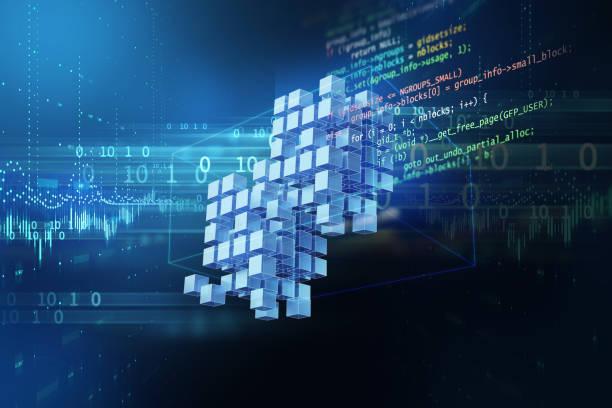Blockchain developers have the responsibility of designing systems to record and store blockchain data in a way that prevents hacks or breaches. As a blockchain developer, you’ll have to analyse your employer’s blockchain needs, design customized blockchain technologies, and launch and maintain their blockchain network.
A blockchain developer needs to be well-versed in computer science, cryptography, and programming to succeed in the field. A thorough understanding of concepts like distributed ledgers, consensus mechanisms, and smart contracts, which form the backbone of blockchain technology, is also required.
Responsibilities:
Your primary focus will be on designing, creating, and implementing blockchain solutions in response to detailed specifications. Selecting a proper blockchain platform, building smart contracts, and designing UIs for distributed apps all fall under this category. (dApps).
- Coding. As a developer, you’ll be responsible for writing code in languages like Solidity, Java, and Python to create blockchain apps.
- To ensure that your blockchain applications are bug-free and fully functional, you will need to do thorough testing and debugging.
- Providing a smooth user experience may require integrating blockchain technology with preexisting enterprise systems.
- To automate procedures and trades, you’ll need to create smart contracts, which are computer programs that can carry out their own terms and run on the blockchain.
- Blockchain node management: You’ll be in charge of supervising the computers that participate in the blockchain’s validation and storage processes.
- Keeping up with the latest trends in the blockchain sector is essential if you want your solutions to be cutting-edge rather than dated.
- To make sure the blockchain solutions are what the business needs and are delivered on time, you’ll need to work with other members of the team, including project managers, designers, and developers.
Qualifications and Training to be blockchain developer
- A thorough foundation in computer science, programming, and cryptography is often required for becoming a blockchain developer. Here are some credentials and courses that can assist you in becoming a blockchain developer:
- A bachelor’s or master’s degree in computer science or a related subject is required. A degree in computer science, software engineering, or a closely related discipline is an excellent starting point for a career in blockchain development. It can help you learn about algorithms, data structures, software engineering, and programming languages.
- qualifications in Cryptography and Security: Because cryptography is a fundamental component of blockchain technology, qualifications in this discipline can be beneficial to blockchain developers. Popular certificates include Certified Cryptocurrency Forensic Investigator (CCFI), Certified Blockchain Professional (CBP), and Certified Ethereum Developer (CED), which can offer blockchain developers with essential knowledge and abilities.
- Programming Knowledge: Blockchain developers must be proficient in programming languages such as Java, Python, C++, and Solidity. Smart contracts, decentralized applications (dApps), and other blockchain-based solutions require strong programming abilities.
- Blockchain Training: There are various blockchain training programs accessible both online and in person. The Blockchain Council, Coursera, and Udemy, for example, provide blockchain development courses that cover the fundamentals of blockchain technology, smart contracts, dApps, and decentralized finance. (DeFi).
- Experience is required to become a successful blockchain developer. Contributing to open-source blockchain projects, participating in hackathons and coding competitions, and developing your own blockchain initiatives are all ways to get experience.
To become a blockchain developer, first, you need to have a bachelor’s degree in computer science or engineering, web development, software development, database management, information technology or other science-related courses. Most importantly you need to be enthusiastic about blockchain technology. This industry is constantly evolving, so you’ll need to keep an open mind to continuous learning. In the meantime, you can enrol in these blockchain courses to get certified and increase your chances of getting hired.
- Blockchain Specialization (University at Buffalo and Coursera)
- Blockchain Basics (LinkedIn Learning)
Average Annual Salary For Blockchain Developers – $102,154
Entry level (0 – 1 year)- $91,584
Early Career (1-3 years)- $97,835
Mid-Career (4-6 years)- $105,896
Experienced (7-9 years)- $111,26
Job Outlook For Blockchain Developers
As of 2021, the blockchain market is valued at $4.9 billion and is projected to reach $67.4 billion by 2026. That’s a shocking 68.4% annual growth rate. Even the U.S. Bureau of Labour Statistics forecast 411,400 new jobs for software developers by 2031. This means one thing, there’ll be increased demand for blockchain developers shortly and you’d be making the right decision to hop on this career path.




